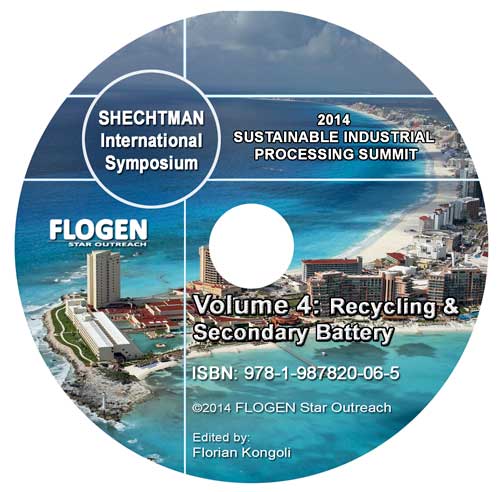2014-Sustainable Industrial Processing Summit
SIPS 2014 Volume 2: Mineral Processing
| Editors: | Kongoli F |
| Publisher: | Flogen Star OUTREACH |
| Publication Year: | 2014 |
| Pages: | 446 pages |
| ISBN: | 978-1-987820-04-1 |
| ISSN: | 2291-1227 (Metals and Materials Processing in a Clean Environment Series) |

CD shopping page
Fuzzy Logic in Mining - Are Right and Wrong Fuzzy Concepts?
John Meech1;1UNIVERSITY OF BRITISH COLUMBIA, Vancouver, Canada;
Type of Paper: Keynote
Id Paper: 241
Topic: 2
Abstract:
Most people will agree that right and wrong are opposites, but in a complex system, this may not be the case. Instead, right and wrong are complementary functions in which the boundary between the two concepts consists of a region in which right and wrong are partially correct. The decision to do the "right" thing within this region must wait for more information; or must account for the fact that what is right for some people might be wrong for others; or what is right at this time or place is not right at another time or place. Accordingly, choosing what one should decide to do becomes dependent on the collective importance of the various supporting and denying pieces of evidence, with the individual importance of each piece being measured by the person making the decision. In other words, a compromise is required. When one is within this boundary, a dialogue with those that have knowledge must take place that can be brought to bear on the problem. But even a dialogue has a degree to it. The depth and extent of the dialogue are affected in that a quick decision may be required which places a significant constraint on the discussions. If that situation exists, after the decision is made, great care is needed to monitor over time to see if any modification is required as time passes. The degree of monitoring may also be constrained since there may be adjacent problems that require attention at the same time leading to a reduction in the resources (time and effort) that can be expended. This paper will present a theoretical model to analysis how fuzzy logic and accumulated knowledge can impact on human decision-making. Examples from the mining industry will be used to illustrate the concept.